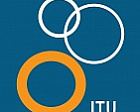World Triathlon expands the online education opportunities during the pandemic
With triathlon events suspended at least for a few more weeks, and with athletes, coaches and officials around the world forced to stay and train at home during the COVID-19 outbreak, the focus for World Triathlon has switched to provide all of them with opportunities to train and get education courses online. And the experience has proven to be really successful for all.
Online Education and resources is not a new field for World Triathlon, especially for the Development department, that has been working with athletes and coaches across the world through the various tools of the Education Hub for a few years.
“In the last weeks, we have been uploading in the Education Hub resources not only for the registered athletes, coaches and Technical Officials, but also we have opened some contents as free access, so that we are giving everyone an opportunity to access useful resources during this time”, explained World Triathlon Head of Development, Zita Csovelyak.
Among other resources, athletes can find there the Wednesday Weekly Tips offered by Emma Carney, two-time ITU World Champion, who is offering advice on different matters, such as developing personal brand and sponsorship deals, or nutrition and exercise ideas under lockdown.
Also available for all triathletes, coaches and officials are the Mindful Offerings with Dr. Debbie Alexander, a World Triathlon Executive Board member and also a Clinical Psychologist with a PhD in neuropsychology/ sport.
The Education Hub offers as well the COVID-19 Guidelines for Event Organisers, for Athletes and Coaches and for Medical delegates so that they all can access some useful tools to prevent Coronavirus. The Guidelines are accessible in English, Spanish, Arabic (two versions) and Turkish.
Online Courses
One of the great opportunities during this pandemic is the possibility of opening up some courses to more people. More than 115 triathletes and 35 coaches from South American countries, like Chile, Argentina, Bolivia, Perú, Puerto Rico, Ecuador, Paraguay, Cuba, Uruguay, Venezuela and Costa Rica, attended the first PATCO Development activity, with one hour of physical training plus another hour of coaching every Saturday in Spanish. The English speaking athletes and coaches can benefit from the same initiative every Friday starting this week.
“For us is a great opportunity so that young athletes can have access to dry training, and implement different activities now that they have to stay at home, and we try to teach them how to maximise their efforts and to stay connected during this pandemic. It was great to see that we had lots of really young athletes from the Youth and Junior categories attending the first courses, and a large number of female athletes and coaches”, explained Alejandro Cañas, PATCO Athlete and Coach Development Coordinator.
In the last few months, the World Triathlon Certified Coaches have gone through the revalidation process, all of them online, with 959 certified coaches from 101 developing National Federations, which completed a Level 1 or Level 2 courses since November 2014 when the Education Hub was launched. Those who missed revalidating their certified status annually in the past three years, a one-go revalidation will be offered during the summer as the last chance to maintain their certification in the newly piloted process.
Another group that has been focusing on online education is the World Triathlon Technical Officials. In 2020, 192 TOs from 42 countries have gone through the Level 1 revalidation course in English while another 69 participants have done so in Spanish, from 12 different countries. For the Level 2 courses, almost 80 Officials have finished the process, coming from 30 nationalities, and with a total of 19 facilitators managing these seminars in the last months.
The agenda for the upcoming weeks includes more training sessions for young athletes, development opportunities for coaches and webinars for all the World Triathlon organizers and technical delegates on the COVID-19 guidelines. The webinars are provided in English and Spanish and are targeting our organizers first, with the plan to be extended to the wider community from June.




